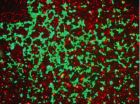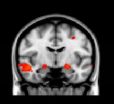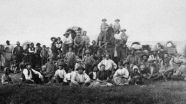(Press-News.org) Cancer's no game, but researchers at Johns Hopkins are borrowing ideas from evolutionary game theory to learn how cells cooperate within a tumor to gather energy. Their experiments, they say, could identify the ideal time to disrupt metastatic cancer cell cooperation and make a tumor more vulnerable to anti-cancer drugs.
"The reality is that we still can't cure metastatic cancer that has spread from its primary organ and game theory adds to our efforts to attack the problem," says Kenneth J. Pienta, M.D., the Donald S. Coffey Professor of Urology at the Johns Hopkins Brady Urological Institute, and director of the Prostate Cancer Program at the Johns Hopkins Kimmel Cancer Center. A description of the work appears in a June 20 report in the journal Interface Focus.
Game theory is a mathematical study of strategic decision-making, and has been widely used to predict conflict and cooperation between individuals and even nations, but increasingly is applied to forecasting cell-to-cell interactions in biology with an ecological perspective. Tumors contain a variety of cells shifting between cooperative-like to competitive-like states, said Ardeshir Kianercy, Ph.D., a postdoctoral researcher in Pienta's lab. "To study tumor cells in isolation is not enough," he noted. "It makes sense to study their behavior and relationship with other cells and how they co-evolve together."
In their research, the Johns Hopkins scientists used mathematical and computer tools to set up game parameters based on biological interactions between two types of tumor cells, one oxygen-rich and the other oxygen-poor. Cells within a tumor engage in different types of energy metabolism depending on how close they are to an oxygen-rich blood supply. Tumor cells in oxygen-poor areas use the sugar glucose to produce energy and, as part of the process, release a compound called lactate. Oxygen-rich cells use this lactate in a different type of energy metabolism process and, as a result, release glucose that can be used by oxygen-poor cells to burn for their own energy.
Generally, the process is an efficient partnership that can help a tumor thrive, but the partnership is always changing as the tumor cells mutate. The mutation rate influences the strength of the energy partnerships between the oxygen-rich and oxygen-poor cells and levels of glucose and lactate production and uptake, according to the scientists.
Applying game theory calculations that accounted for the tumor cells' mutation rates and potential glucose and lactate levels, the scientists found that within certain ranges of mutation rates, "there are critical transitions when a tumor suddenly switches between different types of energy metabolic strategies," Kianercy said. This switch in the playbook of energy production tactics may happen when tumors progress and spread.
The scientists think tumors might be especially vulnerable within this window of strategy-switching, making it a potentially ideal time for clinicians to disrupt the tumor's environment and wreck the partnership among its cells.
Some tumor cells, for instance, may provoke the normal cells around them to release lactate for fuel. A therapy that disrupts lactate transport to the tumor cells during a critical transition "could push a tumor to a condition where cells are not cooperating with each other," Kianercy explained. "And if they become non-cooperative, they are most likely to stay in that state and the tumor may become more vulnerable to anti-cancer therapies."
Pienta said it isn't clear yet whether this type of metabolic cooperation occurs in all tumors. But the game theory model used in the study gives scientists a new way to understand how cancers may progress. "We ultimately want to test how we can interrupt this process with therapies for cancer patients," he said.
INFORMATION:
Robert Veltri, Ph.D., of the Brady Urological Institute was also involved in the study, which was supported by the National Institutes of Health's National Cancer Institute (U54CA143803).
On the Web:
Interface Focus: http://rsfs.royalsocietypublishing.org/content/4/4/20140014.full END
Game theory model reveals vulnerable moments for cancer cells' energy production
2014-07-15
ELSE PRESS RELEASES FROM THIS DATE:
Adolescent males seek intimacy and close relationships with the opposite sex
2014-07-15
July 15, 2014 -- Teenage boys desire intimacy and sex in the context of a meaningful relationship and value trust in their partnerships, according to researchers at Columbia University's Mailman School of Public Health. The research provides a snapshot of the development of masculine values in adolescence, an area that has been understudied. Findings are online in the American Journal of Men's Health.
The researchers studied 33 males who ranged from 14 to 16 years of age to learn more about how their romantic and sexual relationships developed, progressed, and ended. ...
Fish oil supplements reduce incidence of cognitive decline, may improve memory function
2014-07-15
PROVIDENCE, R.I. –Rhode Island Hospital researchers have completed a study that found regular use of fish oil supplements (FOS) was associated with a significant reduction in cognitive decline and brain atrophy in older adults. The study examined the relationship between FOS use during the Alzheimer's Disease Neuroimaging Initiative (ADNI) and indicators of cognitive decline. The findings are published online in advance of print in the journal Alzheimer's & Dementia.
"At least one person is diagnosed every minute with Alzheimer's disease (AD) and despite best efforts, ...
Brain responses to emotional images predict PTSD symptoms after Boston Marathon bombing
2014-07-15
The area of the brain that plays a primary role in emotional learning and the acquisition of fear – the amygdala – may hold the key to who is most vulnerable to post-traumatic stress disorder.
Researchers at the University of Washington, Boston Children's Hospital, Harvard Medical School and Boston University collaborated on a unique opportunity to study whether patterns of brain activity predict teenagers' response to a terrorist attack.
The team had already performed brain scans on Boston-area adolescents for a study on childhood trauma. Then in April 2013 two bombs ...
Study finds unintended consequences of raising state math, science graduation requirements
2014-07-15
WASHINGTON, D.C., July 15, 2014 ─ Raising state-mandated math and science course graduation requirements (CGRs) may increase high school dropout rates without a meaningful effect on college enrollment or degree attainment, according to new research published in Educational Researcher (ER), a peer-reviewed journal of the American Educational Research Association.
VIDEO: Co-authors Andrew D. Plunk and William F. Tate discuss key findings. https://www.youtube.com/watch?v=jwxh1gj-T1M&feature=youtu.be
"Intended and Unintended Effects of State-Mandated High School ...
BUSM study: Obesity may be impacted by stress
2014-07-15
Using experimental models, researchers at Boston University School of Medicine (BUSM) showed that adenosine, a metabolite released when the body is under stress or during an inflammatory response, stops the process of adipogenesis, when adipose (fat) stem cells differentiate into adult fat cells.
Previous studies have indicated adipogenesis plays a central role in maintaining healthy fat homeostasis by properly storing fat within cells so that it does not accumulate at high levels in the bloodstream. The current findings indicate that the body's response to stress, potentially ...
Team studies immune response of Asian elephants infected with a human disease
2014-07-15
CHAMPAIGN, Ill. — Mycobacterium tuberculosis, the organism that causes tuberculosis in humans, also afflicts Asian (and occasionally other) elephants. Diagnosing and treating elephants with TB is a challenge, however, as little is known about how their immune systems respond to the infection. A new study begins to address this knowledge gap, and offers new tools for detecting and monitoring TB in captive elephants.
The study, reported in the journal Tuberculosis, is the work of researchers at the University of Illinois Zoological Pathology Program (ZPP), a division of ...
Protein's 'hands' enable bacteria to establish infection, research finds
2014-07-15
MANHATTAN — When it comes to infecting humans and animals, bacteria need a helping hand.
Kansas State University biochemists have found the helping hand: groups of tiny protein loops on the surface of cells. These loops are similar to the fingers of a hand, and by observing seven individual loops on the surface of E. coli bacterial cells, the researchers found that the loops can open or close to grab iron in the environment.
"These structures are like small hands on the surface of bacterial cells," said Phillip Klebba, principal investigator and professor and head of ...
4 lessons for effective, efficient research in health care settings
2014-07-15
Thousands of studies take place every year in healthcare settings. A report published recently in the American Journal of Preventative Medicine describes how to do many of these studies more rapidly. By taking into account the real-world constraints of the systems in which providers deliver care and patients receive it, researchers can help speed results, cut costs, and increase chances that recommendations from their findings will be implemented.
The lessons come from the My Own Health Report project, a collaboration between seven research institutions with the goal ...
Mormon pioneer mortality rate calculated at 3.5 percent
2014-07-15
The final stanza of the Mormon pioneer anthem "Come, Come Ye Saints" directly confronts the prospect of dying on the trail: "And should we die, before our journey's through…"
Now new research shows that pioneer mortality rates were not much greater than national averages at the time.
This may come as a surprise to modern Mormon youth who've participated in handcart treks.
"The youth go out and learn that a lot of people died and they push the handcart and after three days they think they are practically dead," said retired historian Mel Bashore. "But most people traveled ...
Saltier intravenous fluids reduce complications from surgery
2014-07-15
(PHILADELPHIA) -- Adequate hydration via a saline drip is essential during surgery, but recent reports suggest that getting the balance of salt and water just right could have an important impact on patient recovery. In the largest study of its kind researchers at Thomas Jefferson University found that a slightly saltier intravenous drip (hypertonic saline), and lower total volume of fluid received, reduced the overall rate of complications by 25 percent after the complex Whipple surgery for pancreatic cancer.
"This relatively minor change in intravenous fluids has ...




